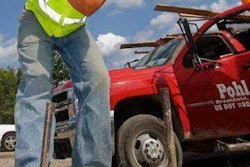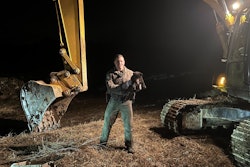
Last week while attending the Association of Equipment Management Professionals Management Conference and Annual Meeting in Orlando, Florida, I heard a term I’d never heard before: “tribal knowledge.”
I thought it sounded like a pretty cool thing until I looked it up on Google. Turns out tribal knowledge is a term used in SixSigma, which defines it as:
“Any unwritten information that is not commonly known by others within a company. This term is used most when referencing information that may need to be known by others in order to produce quality product or service.”
When I read this I was immediately reminded of all the tradespeople I had asked questions of in the past who refused to tell me the secrets of their craft. As one old plasterer said: “If I told everybody who asked how to do this, eventually I wouldn’t have a job now would I?”
It’s a fair point. Ever since the craft guilds of the Middle Ages skilled artisans have been protecting their livelihoods by keeping the methods and materials secret.
But in today’s world where workers must absorb and use vast amounts of information and collaborate among dozens of other stakeholders in huge companies with significant turnover, anybody who keeps trade secrets is harming your company.
To make matters more critical, there is a great wealth of knowledge often locked up in the minds of baby-boomers who are now retiring in droves. And when they walk out the door, all that wealth of information leaves with them.
The other dimension to this problem is that a new generation, millennials mostly, are not trained to or particularly interested in working alongside the masters and patiently picking up knowledge over a long period of time.
The fact that two presenters Gerald Green, Caterpillar strategic development manager; and Stewart, Skoda, president, TeMeDa, made the same point about millennials in two separate presentations and used the same tribal knowledge term leads me to believe this is something on the cusp of becoming important.
Skoda’s point was that to work with millennials you have to understand that most of them grew up as latch-key kids. They come home, they play video games or get on the computer. When they had a question, when they wanted to pursue an interest, they didn’t ask mom or dad, or the older teen down the block working on his hot rod. They asked the Internet. Today’s entry-level technicians and craft workers acquire knowledge digitally.
That’s a huge difference and one that has significant implications for not only managing future generations, but making sure the tribal knowledge within your organization doesn’t disappear in the next few years.
In it’s definition of tribal knowledge, the SixSigma website also adds:
“Unlike similar forms of artisan intelligence, tribal knowledge can be converted into company property.”
But in the digital age that means your company’s training, maintenance records, safety standards, PM procedures and HR policies all have to be accessible with few clicks. If your young guys can’t–on their tablets or mobile devices–find the process for deciphering electrical fault codes and everything else involved in the maintenance and management of equipment, you’re going to be reinventing the wheel every time one person leaves or retires.
The brain drain is about to kick into high gear, but as SixSigma says, tribal knowledge can be converted into company property. And that will be one of the most important challenges facing fleet managers and construction company owners for years to come.
Unless, of course, you decide you want to create an “artisanal” construction company. But that doesn’t sound very profitable to me.












